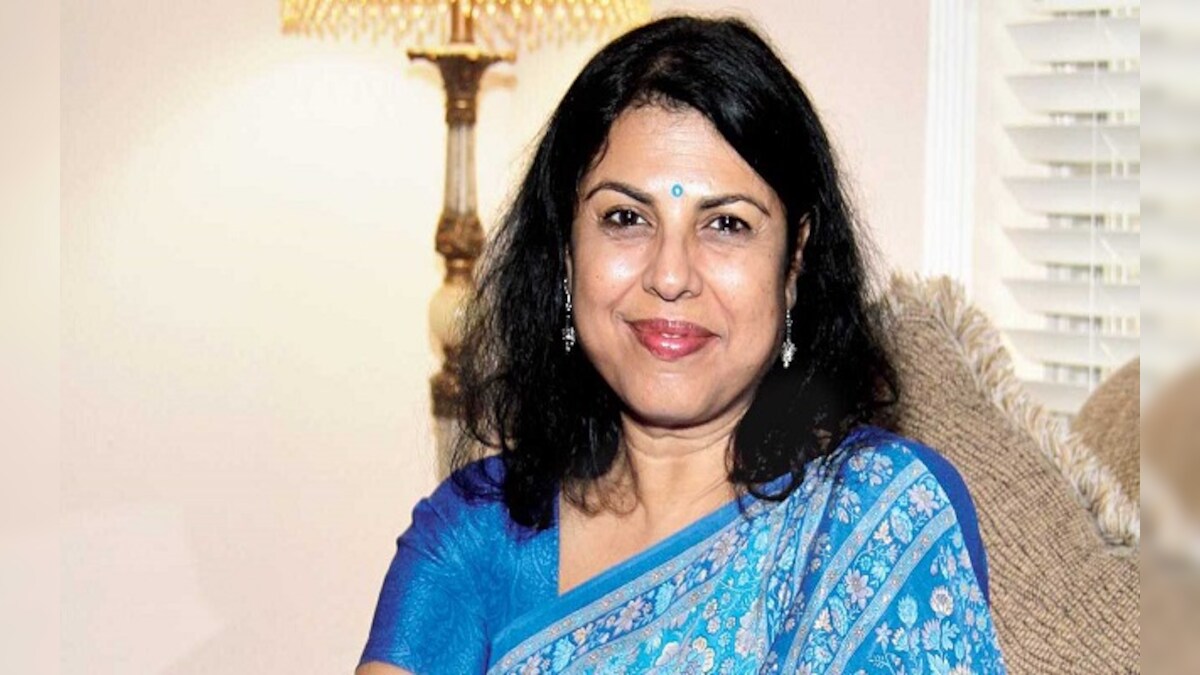Chitra Banerjee Divakaruni’s latest book, Independence, is about three sisters set against the backdrop of India’s quest for freedom. Set in the heady days of 1946, before India’s Independence, the book is a natural progression for the author whose last work was the acclaimed, The Last Queen, about Maharani Jindan, wife of Maharaja Ranjit Singh, who fought valiantly but ultimately unsuccessfully against the British.
“The book was a big inspiration for this.” the author shares and adds, “I just had to follow up with a story about the end of the British occupation of India—when they are forced to leave, and India gains her freedom. It was like my own personal victory against the forces of colonization.”
Independence
is a breezy read charting the story of a family in Bengal. Through the story of siblings Priya, Jamini and Deepa, the author explores the concept of womanhood and nationhood. The narration is pacy and it is endowed with a flow that is typical of Divakaruni’s work, making it an enjoyable read.
Seeped in the past
To recreate the Bengal of the 1940s, the author delved deep into academic research, personal family stories, history books and historical images. She dug out the accounts from newspapers of the time, as well as the speeches of leaders during the period.
“Radio programs, particularly the patriotic songs of Tagore, were very important. I remembered and used stories my mother had told me (she lived in Calcutta during the time of the Direct-Action Day riots) about the horrifying violence of those days.” she shares. It is this research that serves the story well, as the author succeeds in getting the setting right, from the very beginning.
Divakaruni’s women are imbibed with strong personality and agency, be it her acclaimed historical interpretations of Draupadi and Sita or books like Oleander Girl. Independence is no different and offers its leads individuality, forbearance, and a distinct personality.
The author offers women centre stage as she believes that it is important to read, discuss and re-tell the stories of strong women who are also human, with their imperfections. She adds, “Stories of women who struggled and fell and picked themselves up inspire me. From what I’ve heard from hundreds of readers, it inspires them, too.”
While writing the stories of these women, what the author is careful about is painting the character set in the past with values from the present times. “That is always something I watch out for, in order to keep things authentic.” she says and adds, “However, especially during the Freedom movement, women came out of the home onto the streets to fight. (several are mentioned in my novel). So it was a transformative time. It made women feel they could do new things, reach new heights. But they still had to face hurdles.”
The Past and the Present
The three sisters who form the crux of the story are strong yet flawed, Divakaruni says that the inspiration came from multiple sources. She explains, “I imagined them! Maybe Priya is based a little bit on my mother. She, too, grew up in a Bengal village. She was very forward-thinking, she too wanted to be a doctor like her father. But she was not able to do it – too many restrictions. In my novel, I wanted to honor her dream.”
Parts of the novel read like the India of today: the fissures between the Hindu-Muslim communities, the extreme polarization and differences in society show that while much has changed in India, much has remained the same.
The author ponders and answers. “Many things are wonderful in India today. Many things have progressed. I think India stands confidently side by side with the major nations of the world. But the Hindu-Muslim issues remain, the polarizations you mention are sadly present. We must admit they are there. Without facing this truth, we can’t change society for the better. That is one of the aspects of this novel – its contemporary relevance – which is important for me.”
Getting this novel right meant a great deal to Divakaruni who wrote and re-wrote the book, over and over. Bringing the characters alive was a big challenge as was making the three sisters unique and different from each other. She notes, “The poetry of the language/style was very important to me. It seemed to fit the story.”
For someone who has been writing for decades, both about novels which are set in the past as well as in the present, Divakaruni says that of late, she finds that the stories of the past hold a great deal of resonance for her.
“Perhaps it is a part of growing older!” she jests and adds, “We have such a rich history in India. Our epics are the best and most complex in the world. I want to go deep into all these stories and histories and re-tell them to inspire my readers.”
That was perhaps a big reason for the author to write Independence – the setting of freedom-struggle, the sacrifices of thousands of people and the stories within them. The result is an intriguing saga with compelling cast of characters and an unforgettable backdrop of the Independence struggle.
“We forget sometimes how many people gave up their lives to make India independent. I wanted to honor them.” she signs off.
Read all the
Latest News
,
Trending News
,
Cricket News
,
Bollywood News
,
India News
and
Entertainment News
here. Follow us on
Facebook
,
Twitter
and
Instagram
.

